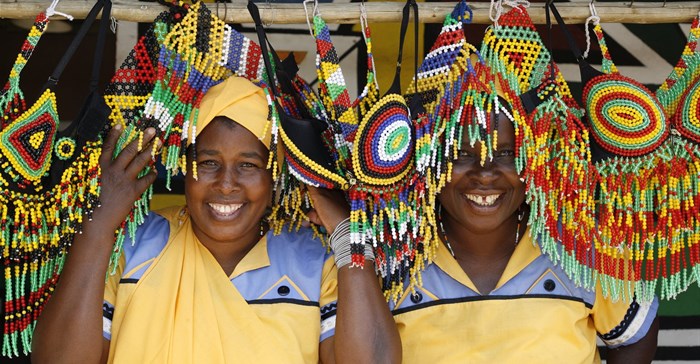In this age of feminism, femvertising, and the overall empowerment initiatives of women across the globe, the media spotlight is pulling towards the contributions of women to our society into even greater focus than ever before. According to a qualitative research study recently completed for a Joe Public United client - Bapedi women in Limpopo aren't just mothers and pillars of strengths for their families and communities. They're far more than that.

Image source: Gallo/Getty Images.
The insights point to the legacy of labour migration to cities like Johannesburg, and as such certain women from parts of rural Limpopo have taken on the responsibility of orientating the younger generation on their cultural clan origins. Direto, Izitakazelo (clan praise) is historically an African man’s licence to cultural endowment through the default of socio-cultural legacies, that they are responsible for instilling cultural values to the younger generations. Thus, socio-cultural shifts have enabled Bapedi women to have free reign in instilling these lessons into the young.
However, it was through the discovery phase of the research that the following insights came to the fore – that a significant amount of Bapedi men (within our sample) only partially knew their clan praises.
Men in the sample conceded to knowing far less than a concise paragraph of their coveted clan praises. This was made apparent by their inability to recite more than five lines of their clan praises. When probing further into this matter, insights revealed that women are the ones that manage the household when the men are away. Thus inferring, that it is in actual fact the women who inherently occupy the mantle of ‘the man of the house’ in the absence of their male counterparts. Given the situation, the women are often left to educate their young on the importance of cultural practices amongst other things, and so is this clan legacy.
The empirical evidence conceded that women seemed to be more knowledgeable about their families’ clan praises than their counterparts and are paramount in their ability to pass down these praises.
So, how do the men feel about this?
From the sample group the men expressed great disappointment in themselves. Leaving them ashamed and filled with embarrassment. They feel conflicted between honouring their economic obligations to their families and honouring their cultural responsibilities as men. Additionally, they felt that they can do much more to instil this indigenous knowledge into their young, than their current contributions.
And in this context, a portion of Bapedi men clearly admitted the crucial role women occupy in the preservation of their clan’s indigenous knowledge systems. And in so doing, we should raise praise to the women who carry the torch in the dark, they are purveyors of cultural preservation, as little is done to acknowledge their contributions in society. To put it bluntly, direto (clan praises) in the Bapedi cultural context are to a significant extent kept alive by those whom we call the mother, mosadi.



































